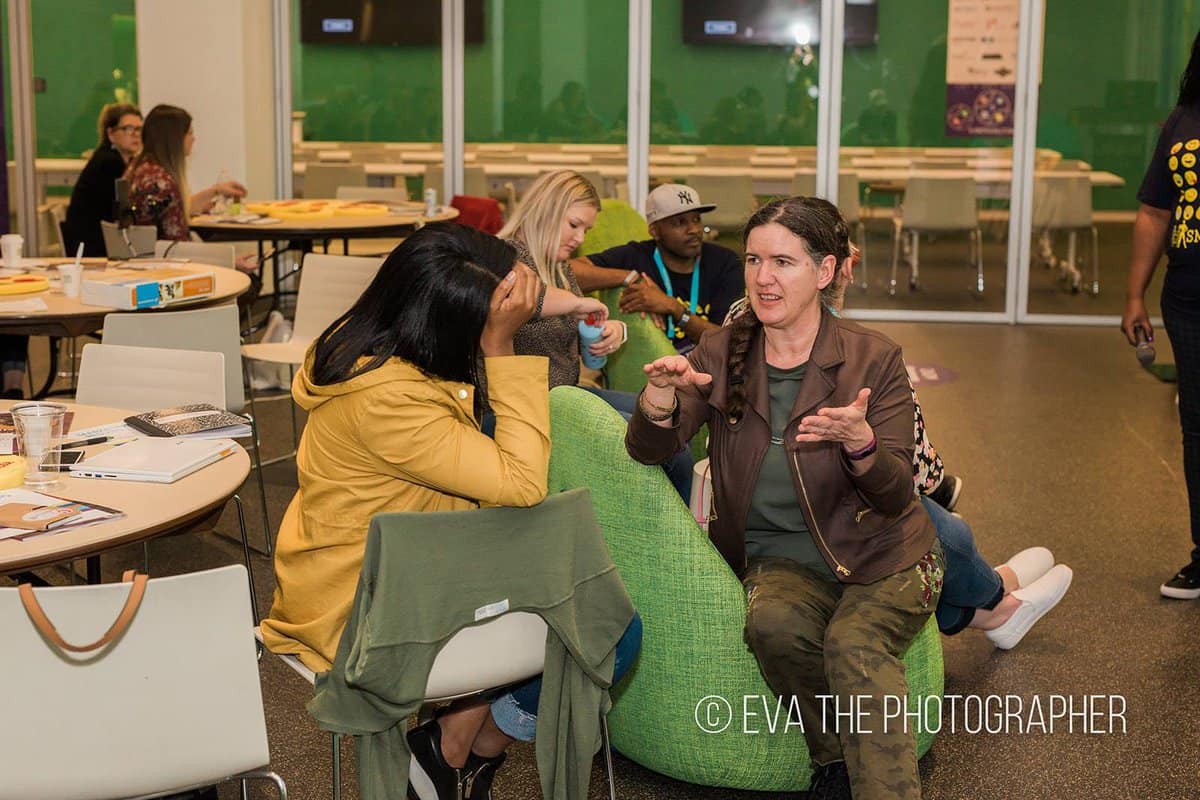
If we meet at a conference, I’ll be happy to give you some of my time. If you need more help, then it may be time for a coaching call. Photo (C) Eva the Photographer, courtesy of SMTulsa.
Years ago, Thursday Bram asked me some questions about how freelancers and other consulting and professional folks can avoid giving away too much of their knowledge for free. Her article at Freelance Switch is no longer online, so I thought it was time to share it here, as well.
Here’s some of my best advice on how to draw the line between free and paid conversations.
What is your reaction when someone asks to just ‘pick your brain’? Do you have a standard reaction that you use across the board or are there people that you’re more willing to talk to?
I decide how to handle people seeking free advice based on my existing relationship with them. Some people are close friends. I’ll help those folks more than someone who emails me out of the blue. Most of the questions seem to come from folks who don’t know me at all. So I try to assess the situation based on our relationship.
Do the people who just want to ask you questions typically turn into paying clients without much help from you?
It doesn’t happen by magic, you do need a strategy. And even then, not all of them will convert. Some are just freebies no matter what you do. I’m a collector of good phrases to use.
- Liz Strauss told me she would say, “If you’d like me to do that for you, I charge $XXX/hour.”
- Denise Wakeman said she will point people to her matching products already available. If someone asked her to look over their publication, she would give them the link to her sales page for a publication critique. Those products are really packaged services.
- Cathy Stucker would say, “I can spend ten minutes with you, and if you require more assistance I will be glad to schedule a consultation at my regular rates.”
- My colleague Deb Brown offers 15 minutes at no charge. When she gets on a call, she sets a timer. When it’s up she asks, “Do you want to go on with a paid conversation? That costs $XXX per hour.”
- Sheila Scarborough used to invite folks to talk with her at her weekly co-working session, Round Rock Jelly. If the question is more involved than can be answered there, it’s a consulting job.
- Jennifer Navarette told the story of meeting with a potential client in his office. He asked lots of questions. Finally, she stood up to come around the desk and reached for the keyboard. Her partner interrupted, “You do know that we just crossed into paid time?” he asked. “Oh, yes,” the prospect said, instantly converting to a paying client.
- Barry Moltz used to say, “time to turn on the meter.” (He’s from Chicago. Can you tell?)
Even with a special phrase in your arsenal, you still have to have a way for people to pay you.
What strategies have you used to turn this sort of person into a paying client? If it isn’t possible to do that, how do you keep this sort of person from wasting your time?
Offer them the help they need, but in a way that respects your valuable time. Here are three ideas of how to educate people on your own terms.
- Create a standard resource you give to people that want to do it themselves. Invest a few hours in creating a simple how-to booklet, paper or downloadable PDF, and save those hours you would normally spend trying to assist the freebie-seekers. You probably have all the info you need in your article or email archives.
- Do workshops. Charge a modest fee. Then Do-It-Yourself-ers can be encouraged to take the class, online or in person. This lets you group up the learners, help them all a certain amount, get paid for it, and allow some of them to see that they really do want professional help. Record the session. Then the next time you get hit up for more free advice, you can refer them to where they can purchase your workshop. Do NOT make this a pitch for your service. Do make it an honest useful training.
- Package your services into a defined product. Then charge for it. If you often get asked to look over someone’s plan, make that a service. Same with requests for help getting unstuck on a project. Once it’s a product, it’s easier to refer and sell.
- Set up a professional-looking place people can see your coaching or consulting offers. And give them a way to pay. They can’t buy something you aren’t actually selling. Use one of the many easy to use online learning platforms that lets you collect online payments.
You don’t have to charge everyone every time.
Decide in advance how much you want to reinvest in others. Maybe you’re happy to review a resume, reassure someone just getting started or spend some time with promising people in your area. Maybe you like to help at a conference whenever possible. That’s up to you.
Set your limits, and be ready to speak up for yourself.










